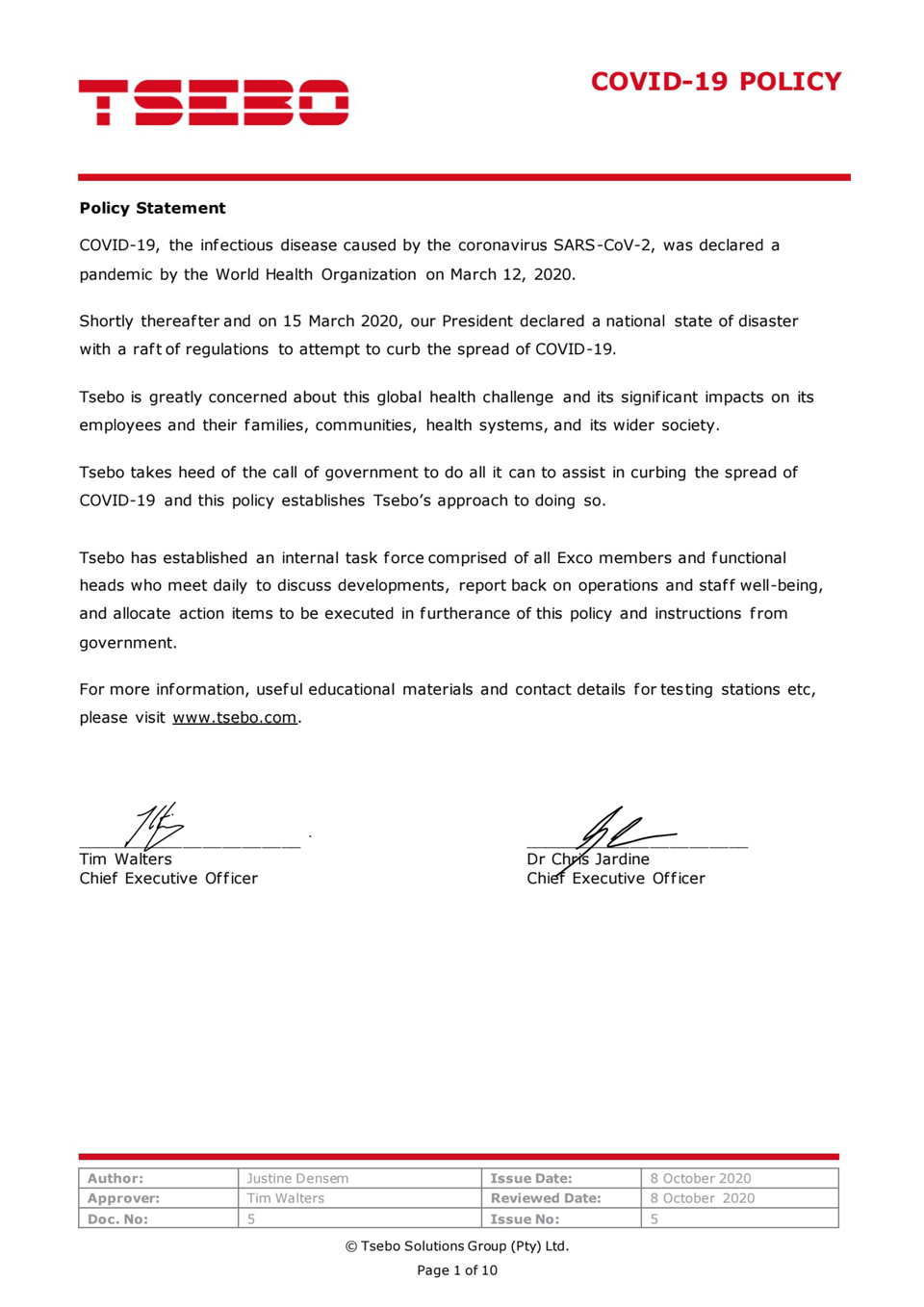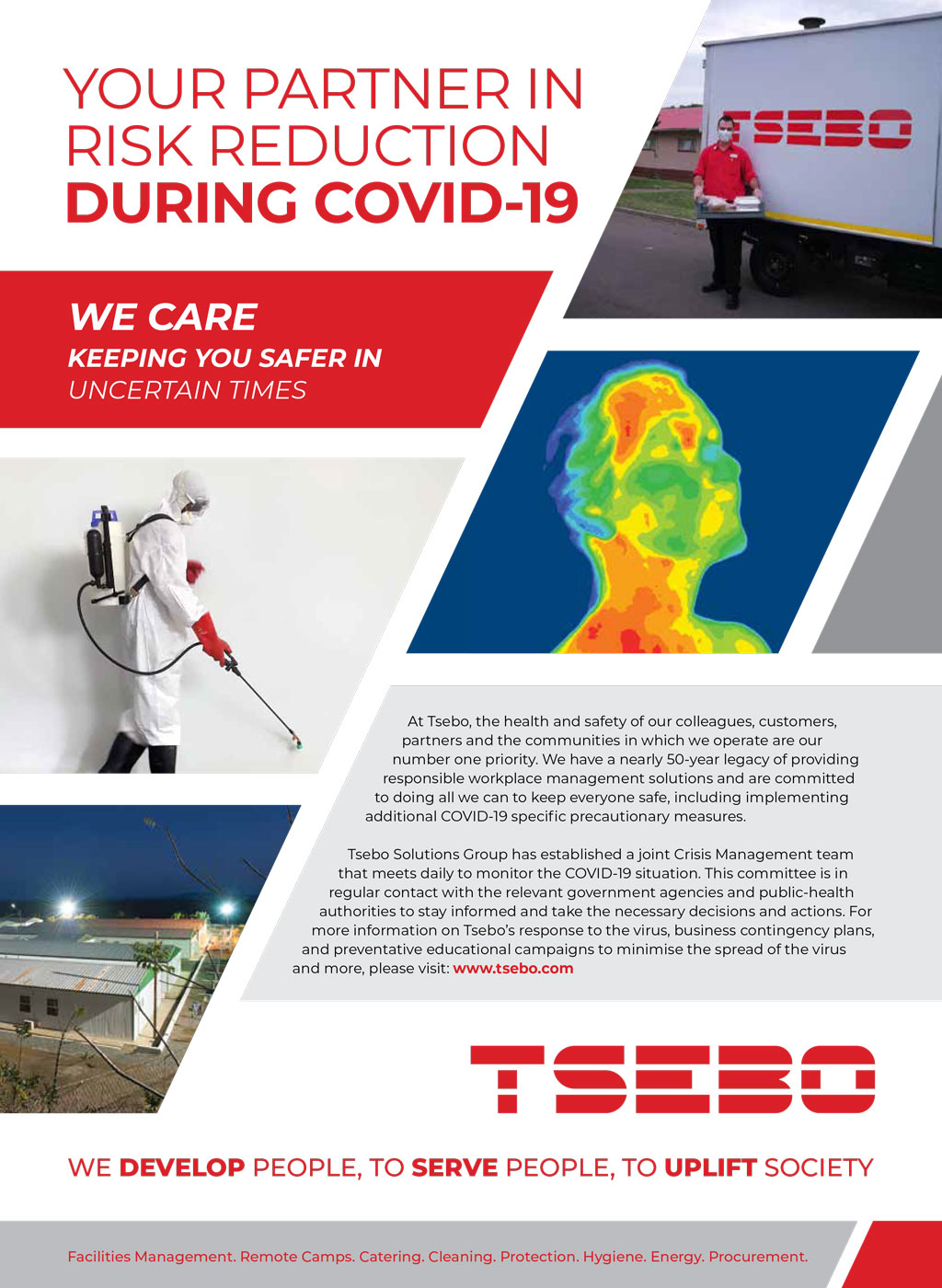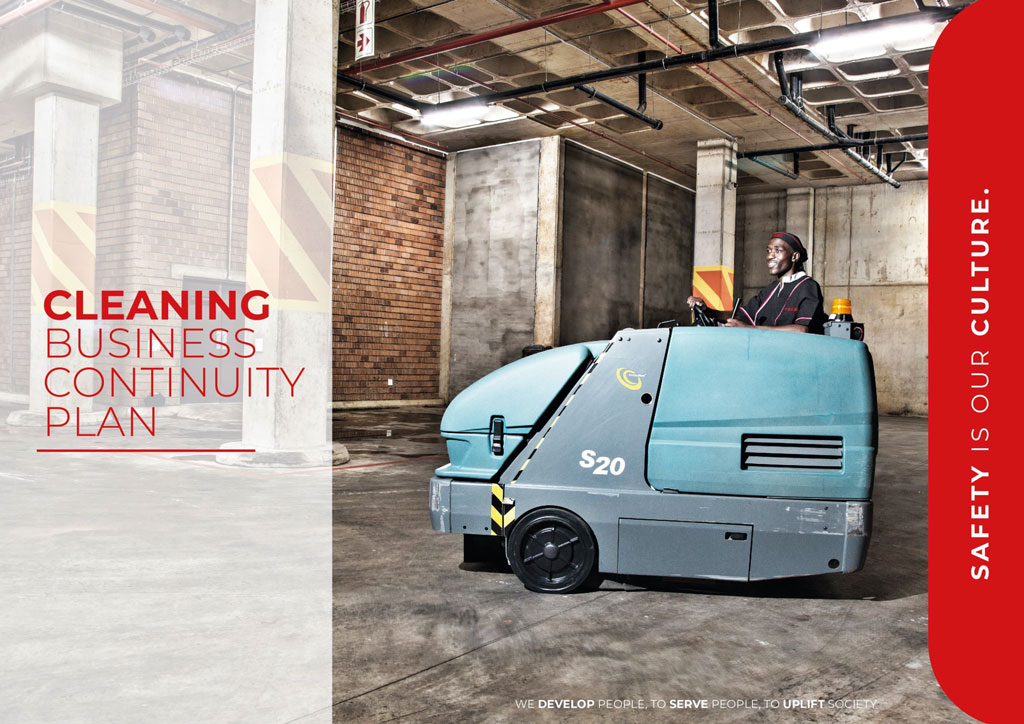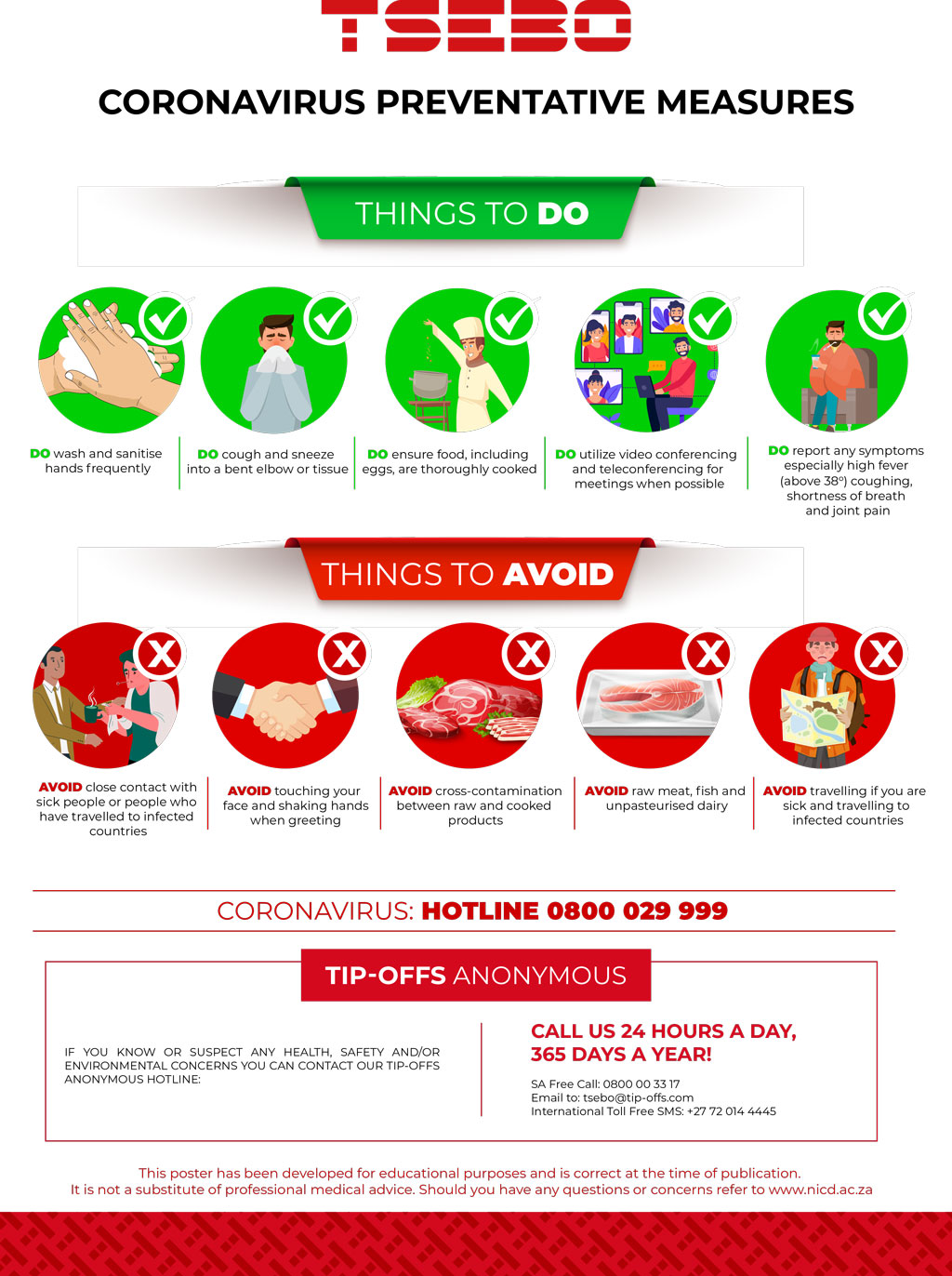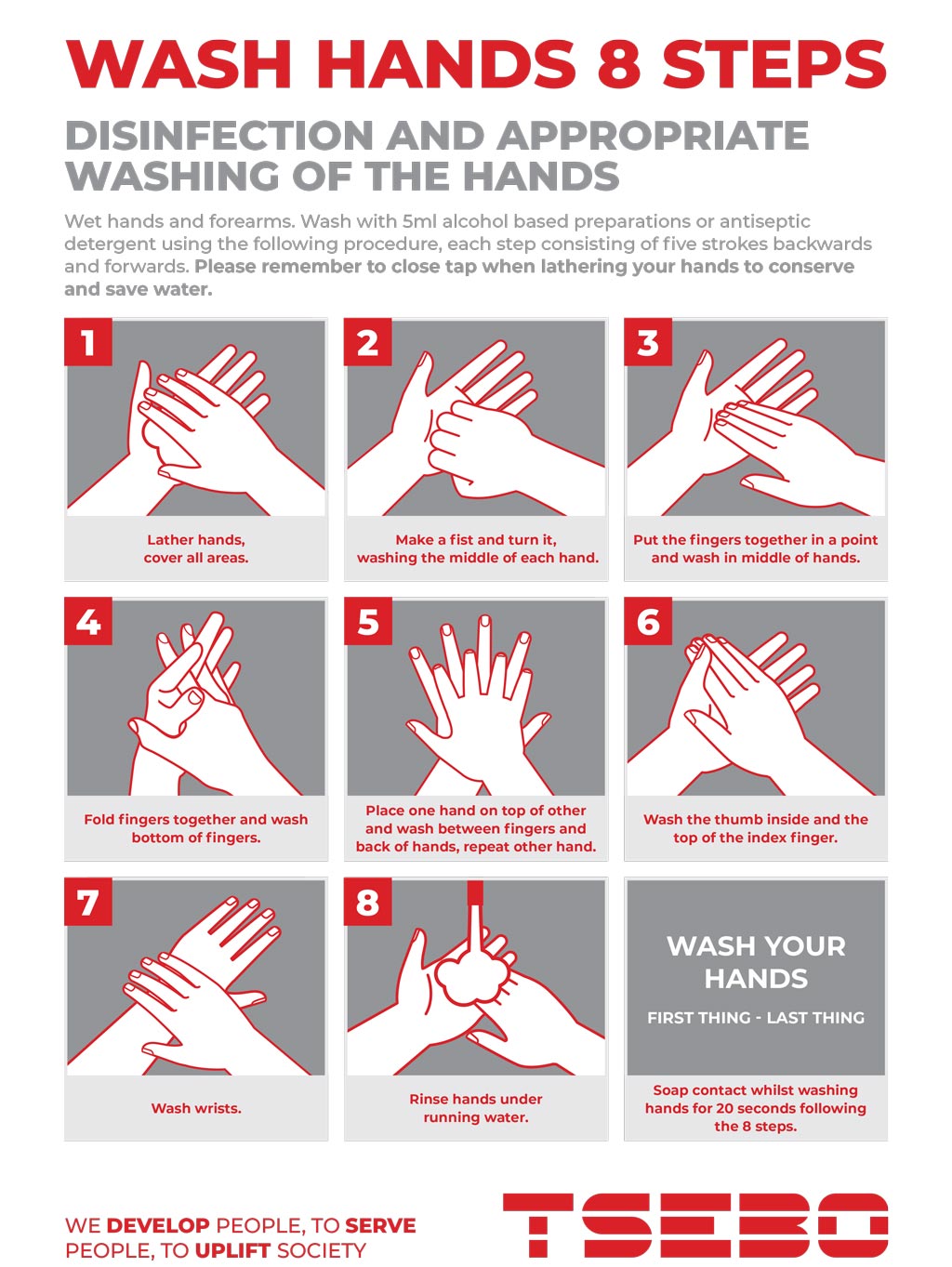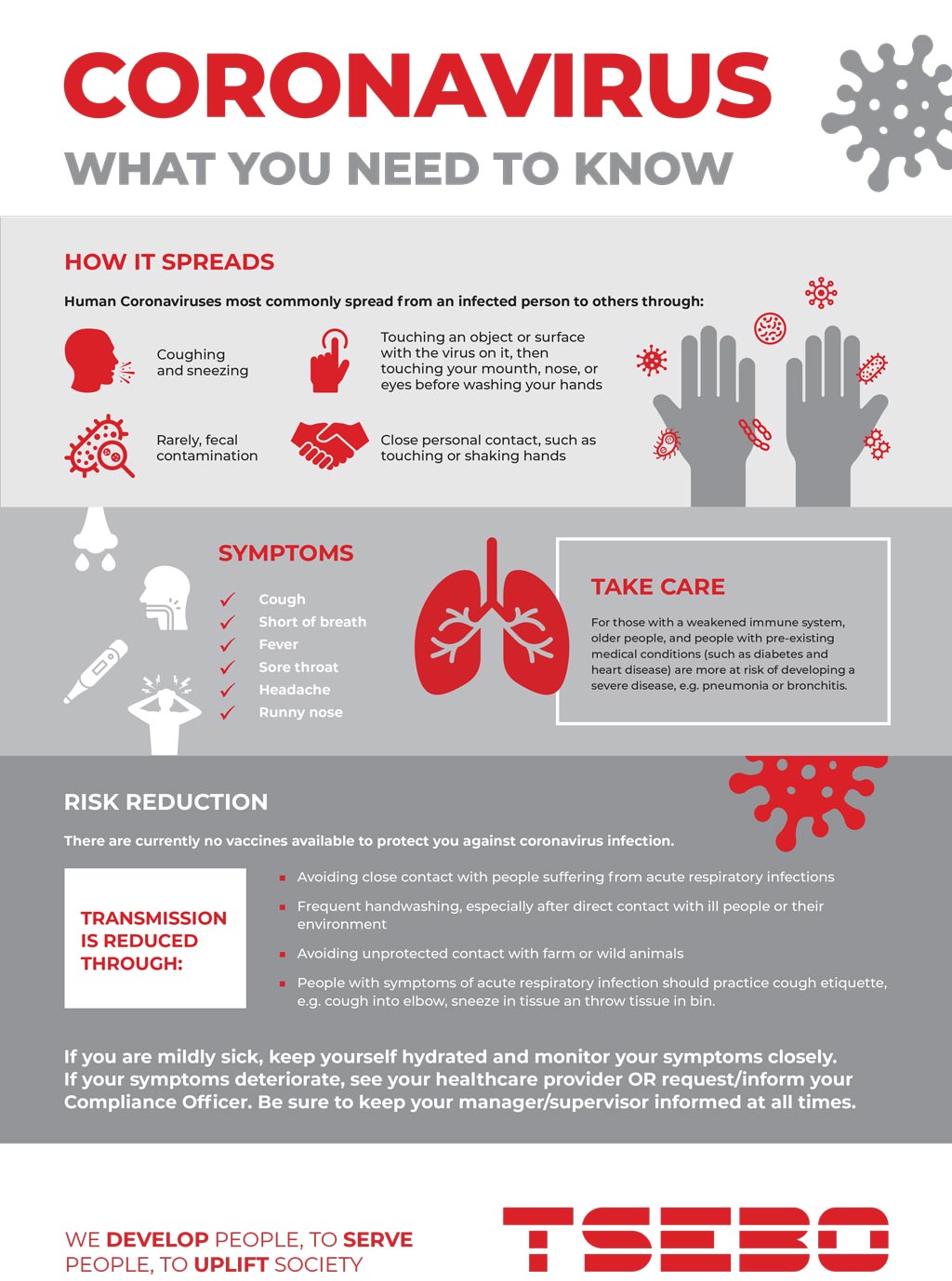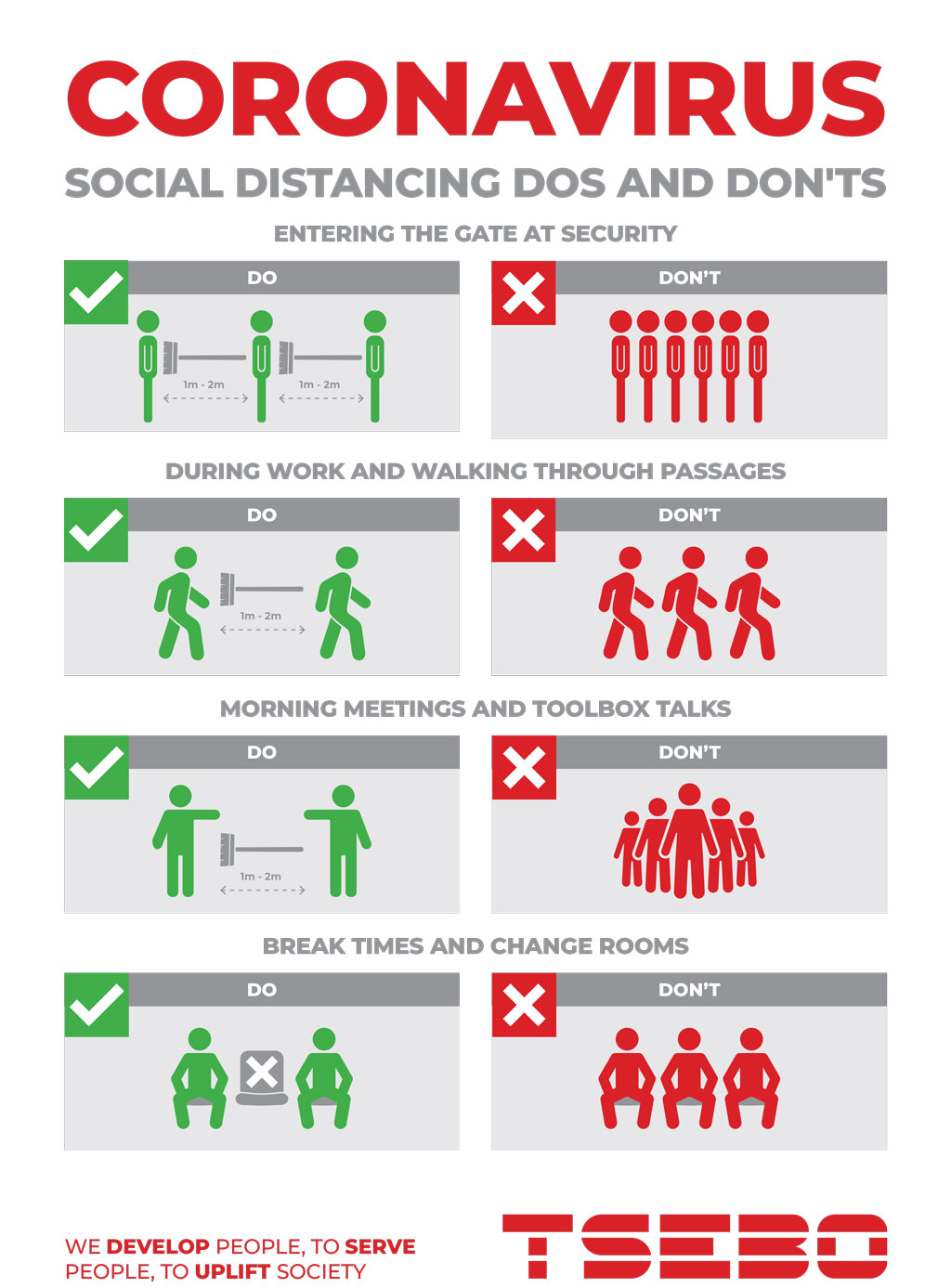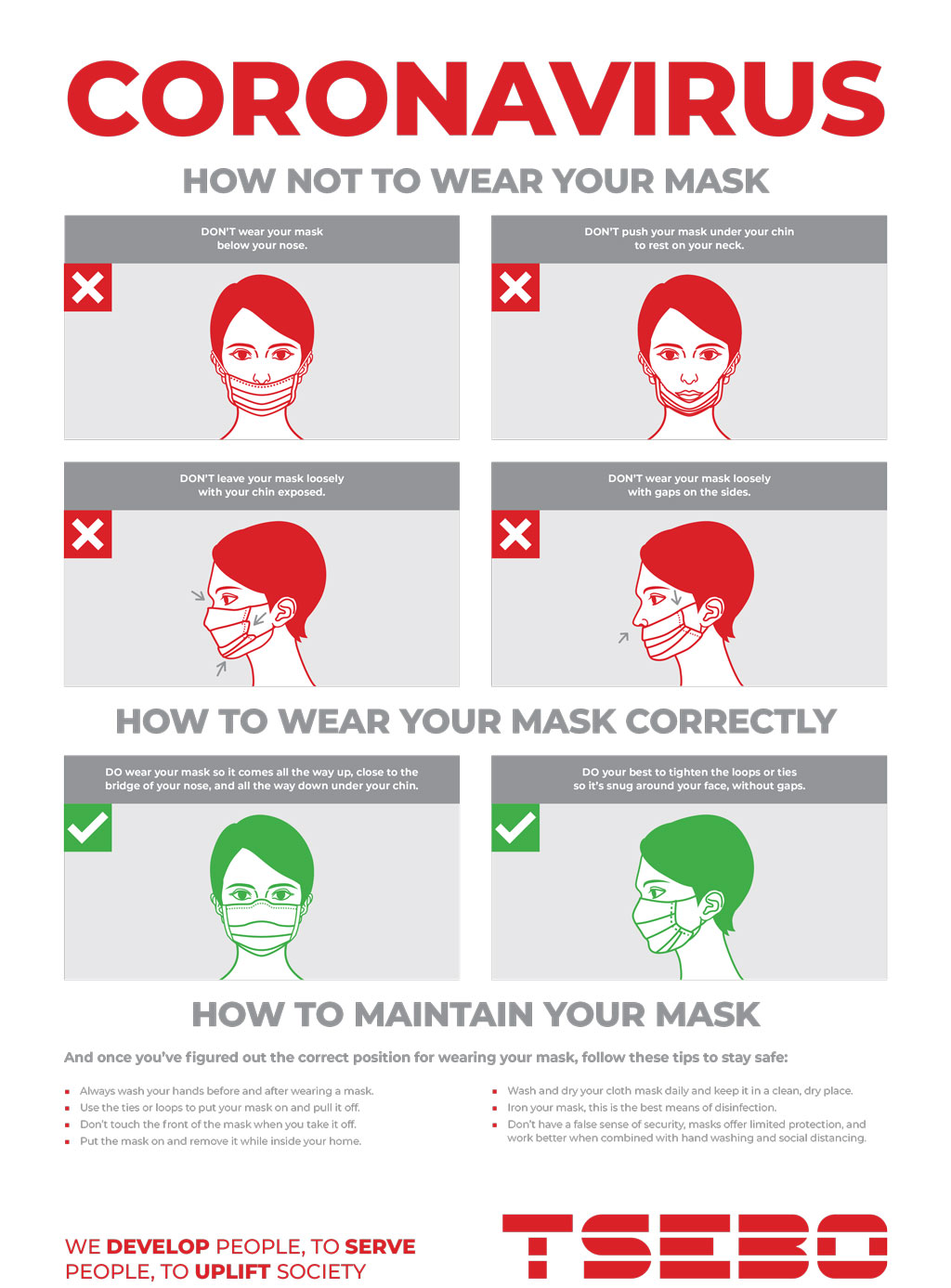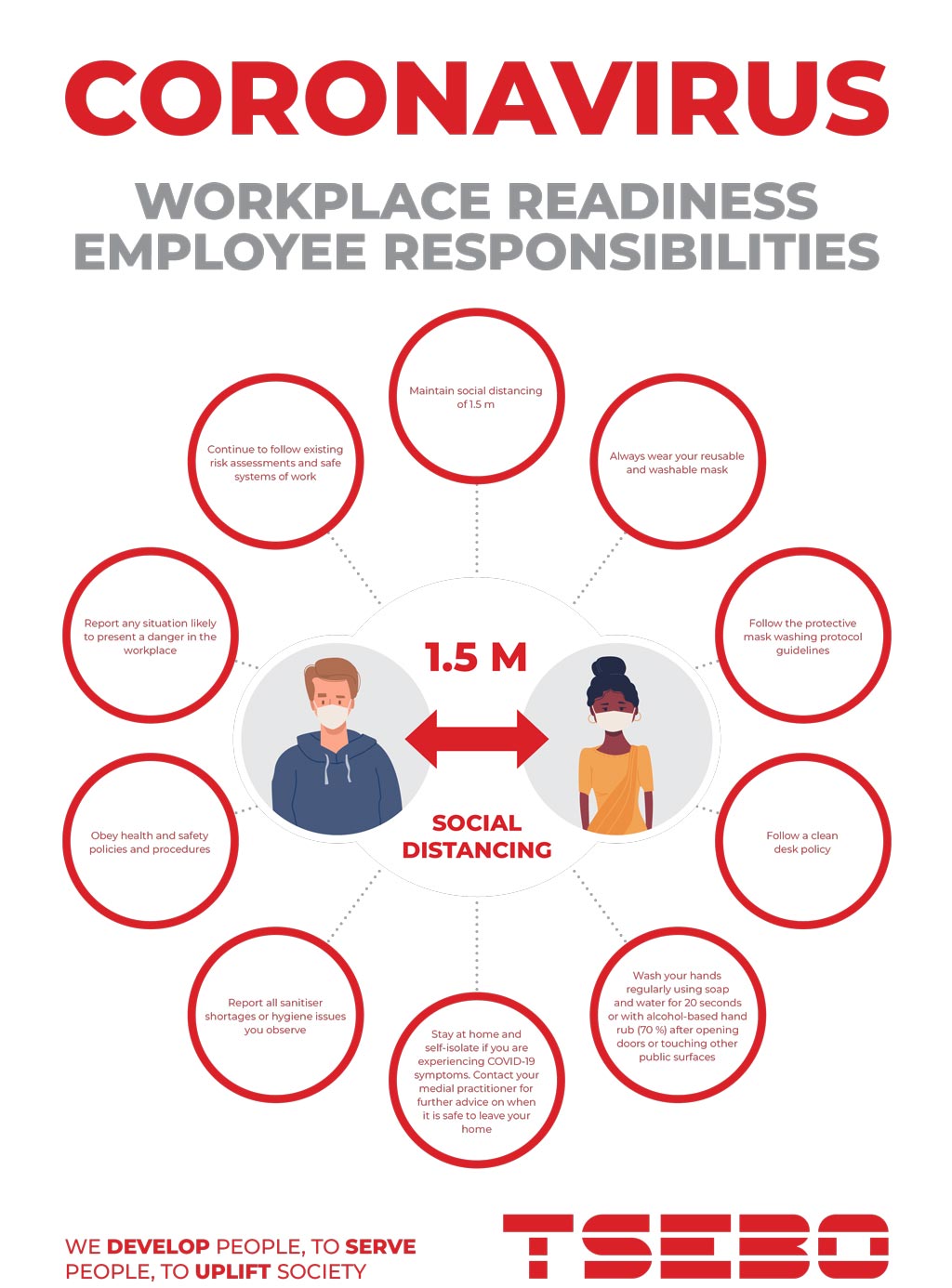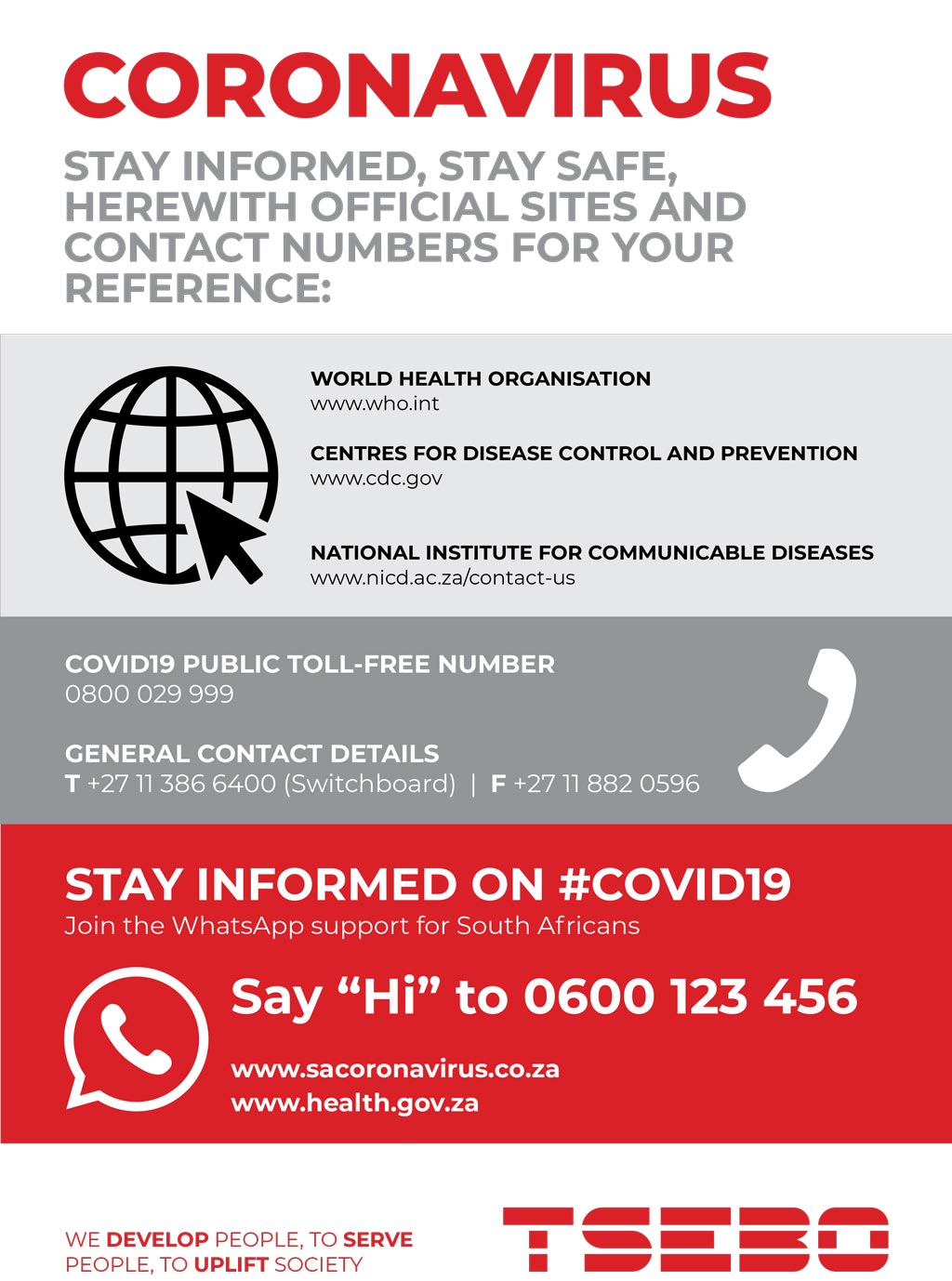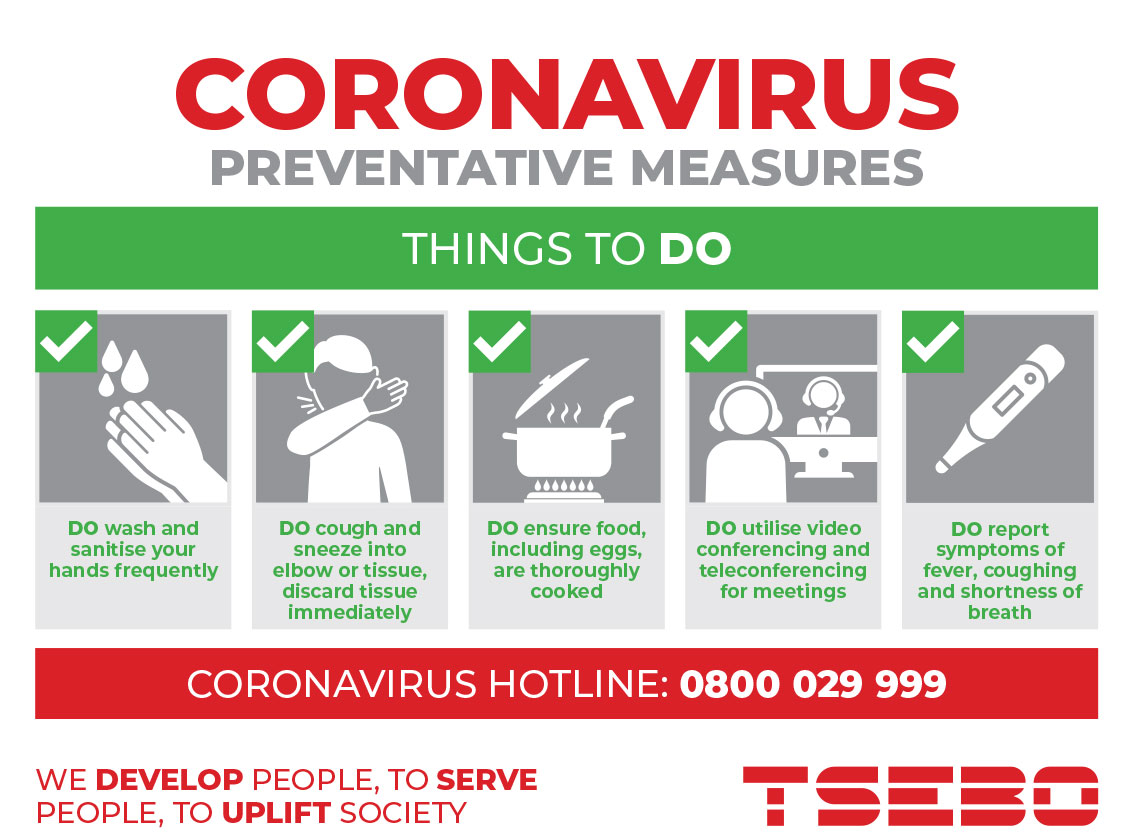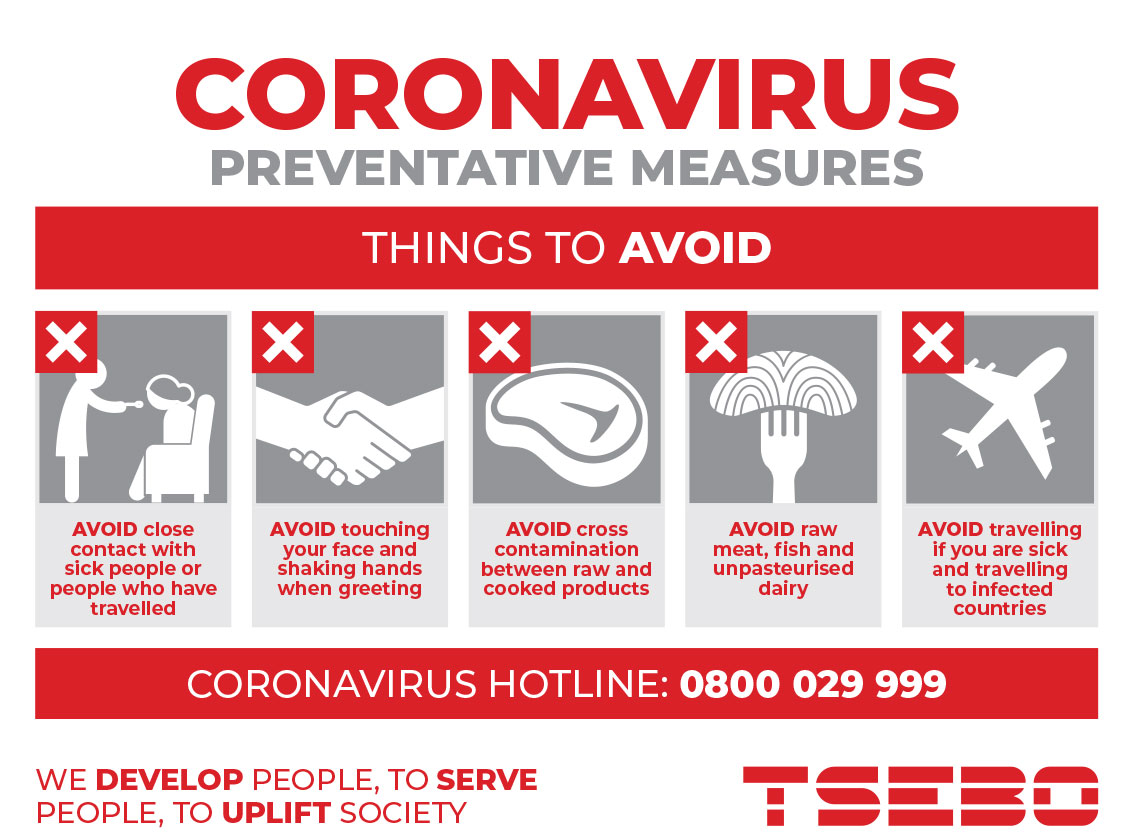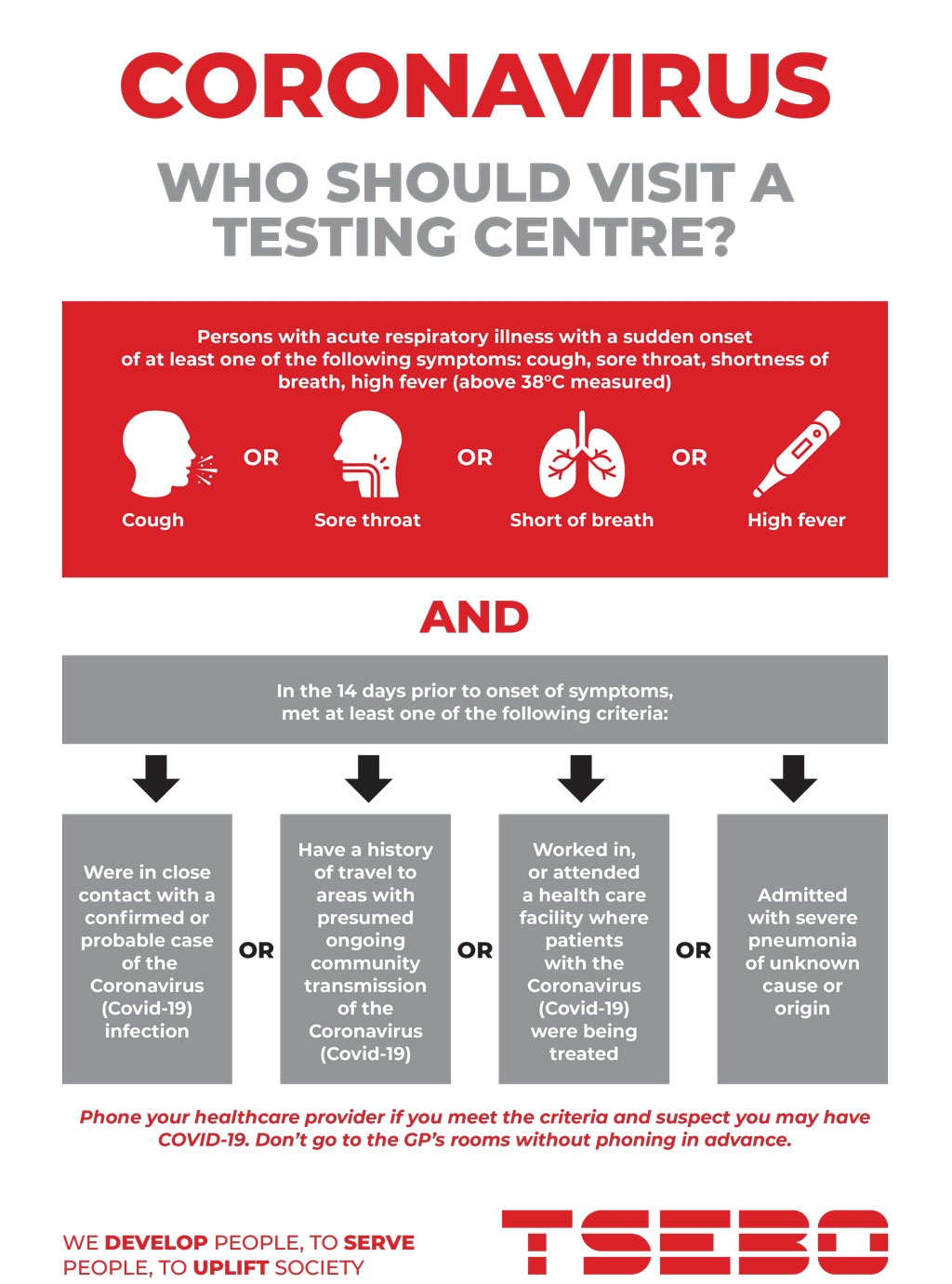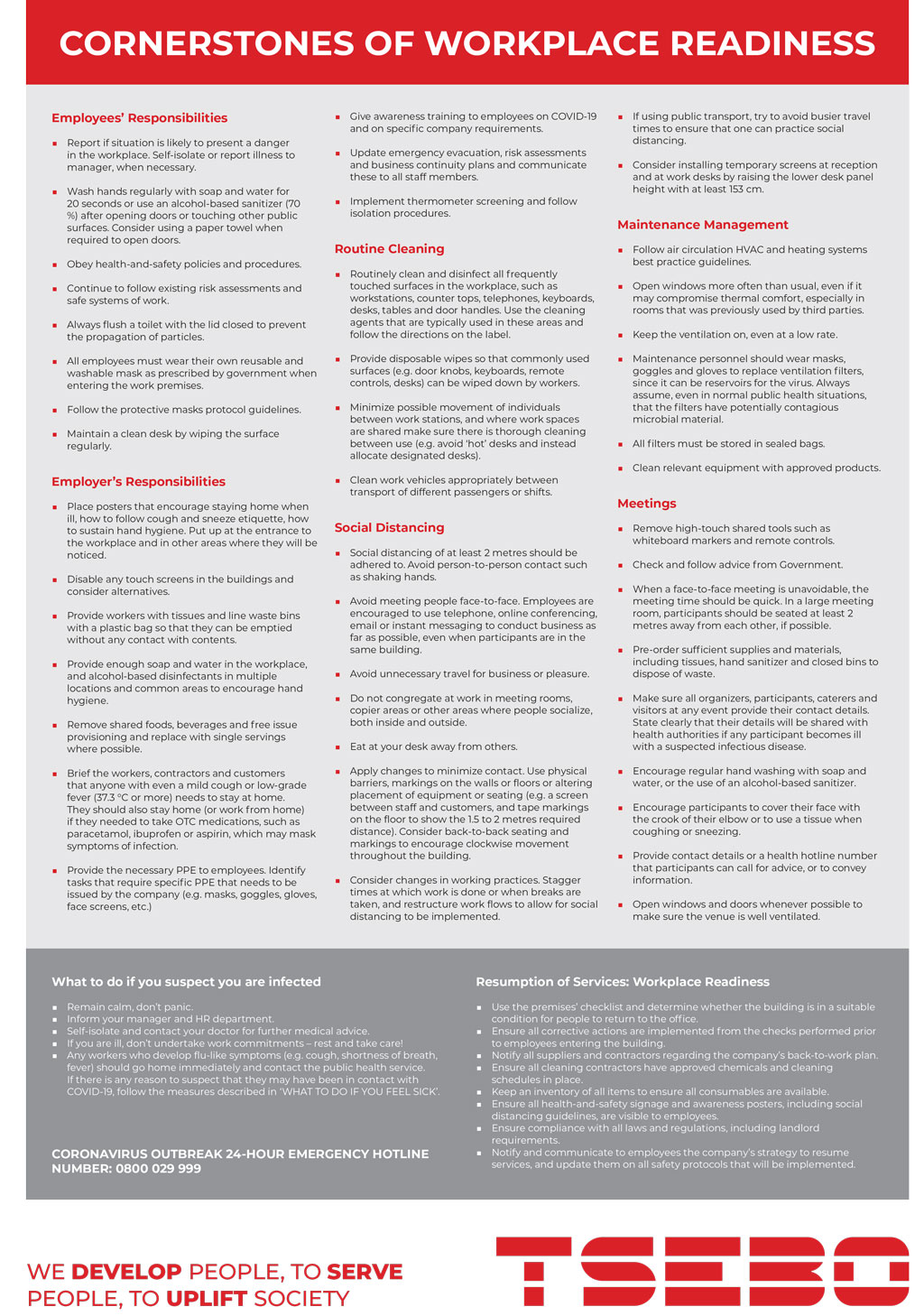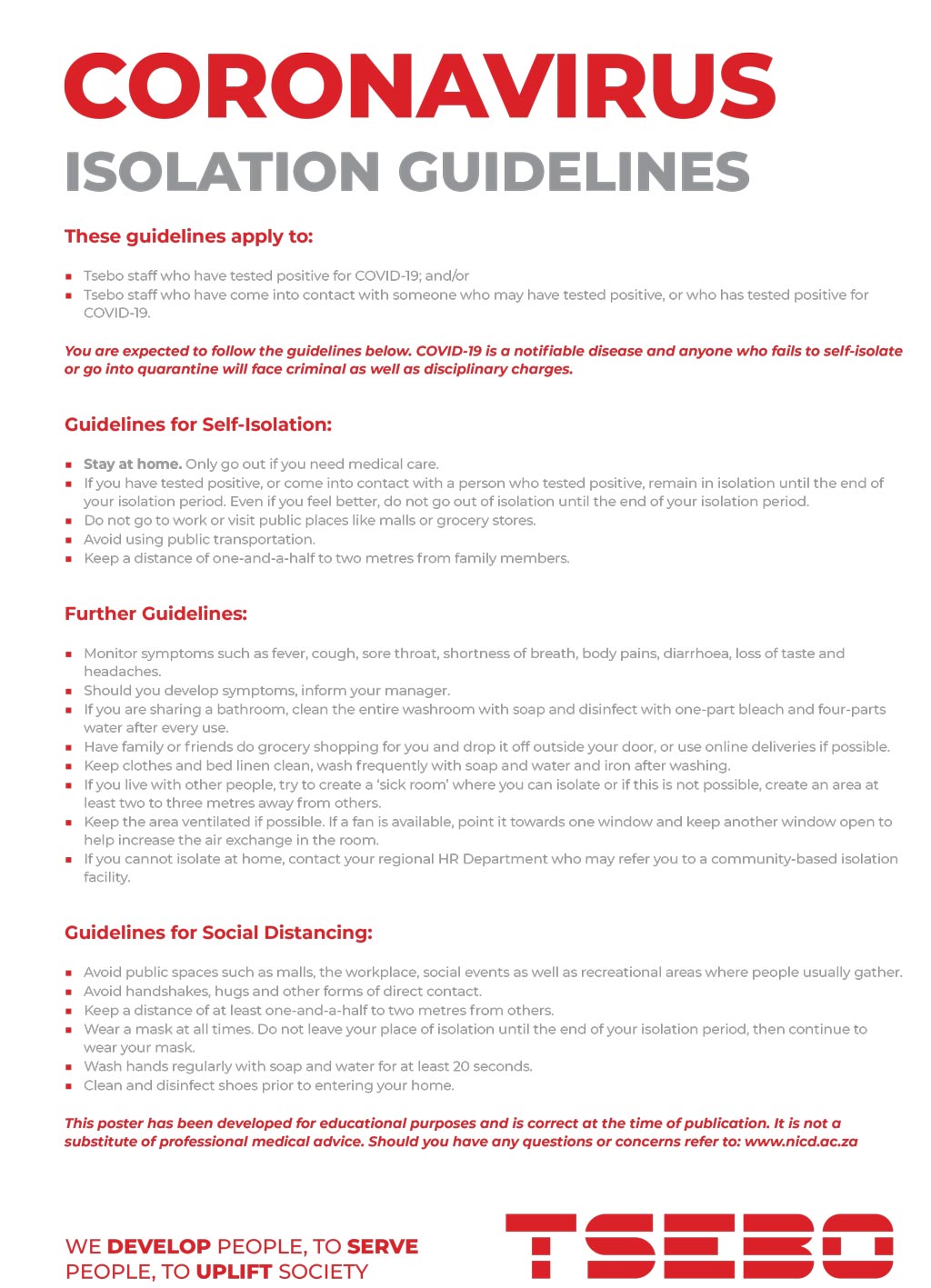The sudden disruption that COVID-19 has brought on the working world has challenged businesses to shift and innovate at an unprecedented speed and scale. Those of us equipped to be working from home find ourselves in the middle of a worldwide experiment in WFH (work from home) culture, but when it comes to the question of returning to the workplace, expert opinions on the matter seem to agree on one thing: there is no “back to normal” – only the “new normal” in a post-pandemic world.
Very few businesses can operate remotely on a permanent basis, and so a return to the workplace for millions of employees is inevitable in the coming weeks and months. Heightened awareness and caution around the spread of COVID-19 will also likely engender unfamiliar new practices.

“The lockdown has offered us a glimpse into how businesses will have to reprioritise” said Stephan Botha, CEO, Tsebo Protection Solutions. “ And while we can’t know how government’s phased plan to fully reopen the economy will play out, it is certain that businesses will be called on to play a part in containing the virus through a fundamental alteration of the way we approach the workplace.”
Management and security of vacant properties
The link between poverty and crime is well known in South Africa, and even disregarding the current crisis, burglaries and robberies at business premises have long been a very real threat. Sadly, the economic toll that the pandemic will have on our business landscape is likely to only increase unemployment and exacerbate the problem. Even under lockdown, a spate of business robberies and opportunistic break-ins has highlighted the need for enhanced security, particularly when premises are left vacant or nearly-vacant for long stretches of time.
Staggered shifts and remote working policies
Maintaining social distancing among colleagues, particularly those in high-density workplaces, will naturally fuel the continued rise of work-from-home technologies and flexible business policies.
However, many workers simply cannot function at home in the long term, so the compromises of staggered shifts and partial flexibility on a rotating schedule seem likely to become popular. This does, however, leave workplaces that plan to run with reduced staff numbers vulnerable to burglaries and robberies as they strive to protect themselves from COVID-19.
Enhanced hygiene and cleaning protocols
The pandemic has shown time and time again that good hygiene is the most effective weapon against COVID-19. Handshakes and closely placed desks at work may become a thing of the past, while wearing protective masks and washing our hands obsessively become standard procedure. But what about our door handles? Our fingerprint scanners? Our boardroom tables? Our telephones? Our hot-desks? Our new obsession with the microscopic world means that public areas and amenities become high-risk items.
 When it comes to access-control in particular, fears over the spread of the virus can quickly turn into risky business practices, loosening standards in the name of hygiene.
When it comes to access-control in particular, fears over the spread of the virus can quickly turn into risky business practices, loosening standards in the name of hygiene.
“We know that the SARS-CoV-2 virus can live on surfaces for hours or even days, and unfortunately our workplaces have been designed over centuries to be accessed through communally touched items and surfaces” continued Botha. “This will have to change fast in the post-pandemic world, but luckily the technology is already there for us to do so safely and without added security risks”.
Hands-free access control that doesn’t compromise on security (for example, through facial recognition or remote verification systems) are set to become an accessible norm for businesses of all sizes. Aided by innovations in the “Internet of Things”, connected devices from all over a business’ premises and beyond will communicate seamlessly, forming innovative new ecosystems that are as secure as they are hygienic.
The need for widespread testing and screening at work
As knowledge of the ways in which the virus is spread improves, it is clear that testing and screening will become a top priority in order to isolate those who may be carrying the virus without realising they are ill. Access control will need to combine with daily temperature screening, whether by handheld no-contact thermometres or, less invasively, with automated thermal screening technologies.
As we strive to balance employee safety with business efficiency, the need for new approaches to security has never been higher. With South Africa’s already well-documented security risks only being exacerbated by the public healthcare requirements of the “new normal”, there has never been a better time to review a business’s systems and procedures, and to make the changes necessary to prosper.
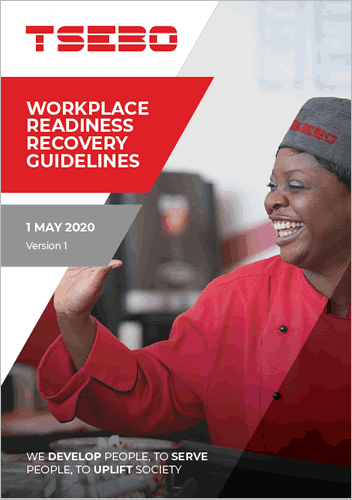
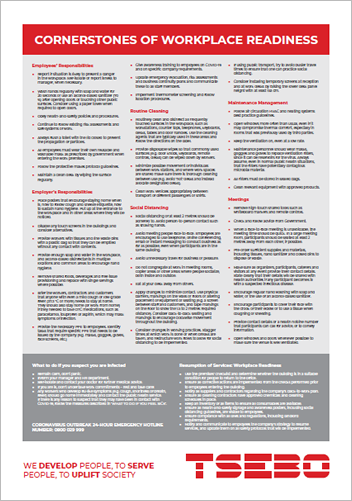 Further to this through leadership article, please download the full workplace readiness recovery guidelines document here, together with the cornerstone of workplace readiness poster that provides an easy, digestible and convenient summary of the guidelines.
Further to this through leadership article, please download the full workplace readiness recovery guidelines document here, together with the cornerstone of workplace readiness poster that provides an easy, digestible and convenient summary of the guidelines.
We are all in this together.
This guideline is not intended to act as a summary of the regulations, or offer legal or medical advice. We encourage you to refer to the full regulations for further direction and implementation.



